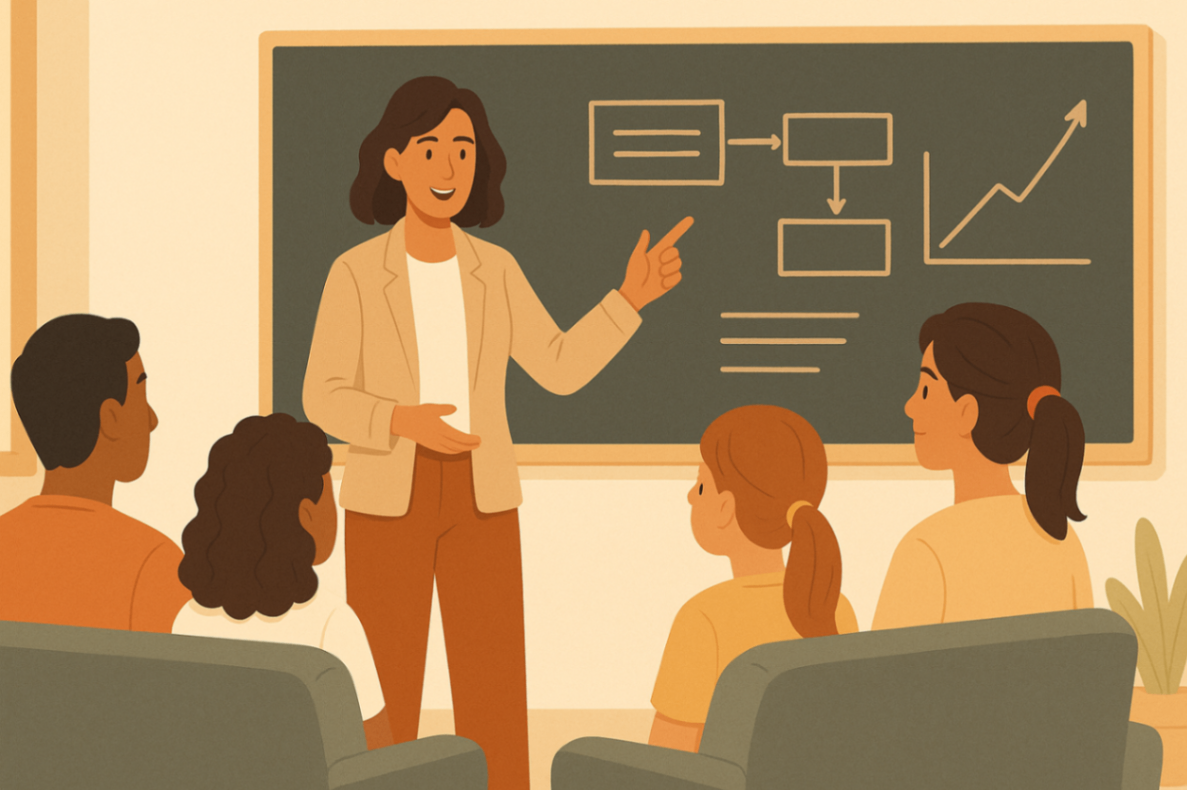
how pbs strategies are personalised in specialised behaviour plans
20 June, 2025

Key Highlights
-
Tailored Positive Behaviour Support (PBS) strategies help meet the unique needs of each person. This can help make real behaviour change.
-
When families and professionals work together, the plan to support behaviour is usually more effective. This teamwork can give better outcomes for all.
-
Data collection helps these strategies get better over time, especially for people facing challenging behaviour.
-
PBS interventions are useful in more than one setting. They support people in schools and also in other places, like social care.
-
Using proactive ways and social reinforcement can make quality of life better. These methods often bring positive outcomes for people.
-
These special behaviour plans also make mental health and emotional well-being a main focus.
Introduction
Tailored strategies can really change lives. Positive Behaviour Support (PBS) uses plans made for each person to help people with specific needs. PBS looks at behaviour challenges and uses ways that fit the person, rather than a general approach. By doing this, it helps improve positive behaviour and lets people have more control over what happens to them.
If a person has a disability, is going through a tough time, or is dealing with mental health problems, a behaviour support plan looks at what they need the most. With teamwork and clear goals based on facts, these plans make it easier to reach a better quality of life.
Let’s take a closer look at how PBS can be used to bring good change for those who need support for positive behaviour and mental health needs.
Understanding Positive Behaviour Support (PBS) in Australia
The positive behaviour support (PBS) framework in Australia helps people with different behaviour challenges. It focuses on understanding the unique needs of each person. The main goal is to make sure the support plans are made just for them. This way, PBS aims to get good and positive outcomes for everyone.
PBS uses a proactive approach. It means to act before problems happen and help people grow both emotionally and socially. This can make their quality of life much better. When educators, caregivers, and mental health professionals work together, they can give the best support. With this supportive team, people learn how to manage their own behaviour in positive and useful ways.
Definition and Core Principles of PBS
What makes PBS strategies stand out? It starts with knowing the behaviour support process and using steps that help before problems start. Unlike ways that only react after trouble, PBS works by giving positive behaviour support often and making sure help is always there.
The key to this method is using proactive strategies to stop hard behaviour before it starts. This could mean changing the room a bit or teaching someone safer ways to show how they feel. For example, some people use visual guides to stop sudden outbursts in the room or to help people who are bothered by sounds or lights manage the space better.
Social reinforcement is just as important. Giving rewards like sticker charts for kids or praise for grown-ups helps small actions become habits. PBS puts the focus on what each person needs. By using actions that work for day-to-day life and making sure to help with behaviour change, PBS helps people feel better, gives them more respect, and lets them have more say over their lives.
The Importance of Personalisation in PBS
Personalisation changes how PBS strategies work in people’s lives because it looks at each person’s specific needs. When you use a one-size-fits-all method, you miss out on the things that make someone special. That is why individual behaviour plans are so important. These plans set the way for real and lasting quality of life improvement.
For example, making changes in the environment—like having fewer distractions in a classroom or offering quiet places at work—helps manage challenging behaviour triggers. These special plans are not fixed or final. They get better as there is more teamwork between teachers, caregivers, and those working in healthcare.
When people give this much care and thought, they help everyone reach better outcomes. The plans work for kids who want to stay involved at school and also for adults facing emotional challenges. Personalised PBS brings out the best in us. It meets each need and lets people move forward with trust and pride. This helps people reach their goals and feel more included in the world.
The Process of Personalising Positive Behaviour Support (PBS) Strategies
 A good support plan for Positive Behaviour Support (PBS) should focus on the person’s unique needs and their own behavioural challenges. Collecting data at different times of day helps everyone see what the behaviour is and when emotional challenges might come up. Teachers and caregivers need to work as a team to make a behaviour support plan. This plan should go after negative behaviours and also use positive reinforcement to help. When people use support strategies, like sticker charts, there is a clear roadmap. This leads to better outcomes and helps with behaviour over time.
A good support plan for Positive Behaviour Support (PBS) should focus on the person’s unique needs and their own behavioural challenges. Collecting data at different times of day helps everyone see what the behaviour is and when emotional challenges might come up. Teachers and caregivers need to work as a team to make a behaviour support plan. This plan should go after negative behaviours and also use positive reinforcement to help. When people use support strategies, like sticker charts, there is a clear roadmap. This leads to better outcomes and helps with behaviour over time.
Collaborating with Individuals, Families, and Professionals
Effective PBS strategies use a collaborative approach to make sure plans are just right for each person’s goals. The people involved take small steps, but together, these actions build a road that leads to real changes in social care.
-
Families share what they know about their loved one. They talk about what sets off certain behaviours, what drives someone to act, and what their days are like. This helps to make behaviour support plans that fit better.
-
Professionals use their own know-how. They add ideas and tools so the plans match the environment, needs, or goals that the person has.
-
People themselves help, too. This is key for self-awareness. When individuals take part in making the plan, it gives them power over it.
Working together in this way allows the team to come up with helpful support strategies. They look at someone’s feelings, surroundings, and actions. No matter if this happens at home or in places like schools, this teamwork leads to better outcomes. Using resources and ideas together gets results much faster and better than working alone. By including different points of view, the plans have more detail, care, and respect. This helps drive good and wide-reaching social care, giving everyone a role in creating right-fit behaviour support and tools for success.
Tailoring Interventions to Unique Needs
Customising interventions is an important part of PBS. When you address unique needs, the strategy can work better for the person. Behaviour plans change so they fit what someone really needs. For example, making set routines can help lower anxiety. Changing the way a room is set up can also help with challenging behaviour.
PBS also finds success by changing how people deal with feelings. For example, for kids with sensory-sensitive autism, it helps to give them a quiet place. On the other hand, adults who feel stressed in public can use things like fidget toys or get help from a professional to deal with anxiety there.
This personal approach means people get what works for their unique needs, no matter how old they are or where they are. The strategies do more than stop bad behaviour. They help build trust and strength, so people can handle things better today and keep growing tomorrow. This is good for the long-term success in behaviour management.
Data-Driven Decision Making in PBS
 Without data, good behaviour management is not complete. Systematic data collection helps PBS specialists because it shows how these strategies work each day.
Without data, good behaviour management is not complete. Systematic data collection helps PBS specialists because it shows how these strategies work each day.
In changing settings, targeted review shows where plans work or not. For example, if school teachers keep track of how stickers help in building better classroom habits, it gives useful information for understanding positive outcomes. By watching all the time, teachers can start to make adaptive plans just for each student. This careful process leads to choices that improve how students act and feel over time. It helps teachers adjust and get better results for students’ mental and social health.
Collecting and Analysing Behavioural Data
Using a careful way to gather and look at behaviour data is key for good behaviour support plans. This kind of data gives clarity on how individual students act. It helps you spot their specific needs and find their challenges. When you get this information as things happen, you can use proactive strategies that fit each student.
Looking at this data helps you know more about hard behaviours. It also lets you make your support strategies even better. This leads to positive outcomes and can make the quality of life better for everyone in the group.
Adjusting Strategies Based on Outcomes
PBS strategies get better results when they are made to fit each person closely. Making special support ways is needed for better mental balance and active practice, and it helps when these ways are steady and always growing. When there is consistency, it is easier to see useful changes. People use careful steps that are based on real proof and change as needed, using things learned over time. This helps in different changing situations, no matter what is there, so every person can get better one step at a time, right away. Consistency is key for better life changes now and for the future.
Get a Personalised Behaviour Support Plan Today
Create Lasting Change with a Plan That Works for Your Family
At daar, we design individualised Behaviour Support Plans that empower children and families to achieve real, lasting results. Whether your child is navigating social challenges, emotional regulation, or complex behaviours, our plans provide a clear, actionable roadmap tailored to their unique needs.
Using evidence-based strategies like proactive behaviour techniques and positive reinforcement, we help children develop better social skills, improve emotional wellbeing, and experience a higher quality of life.
Every plan is a collaborative effort—built in partnership with families, teachers, and support staff—so everyone is aligned and confident in the journey ahead.
Book Your Personalised Behaviour Support Plan →
Conclusion
To sum up, using Positive Behaviour Support (PBS) strategies that fit each person can really help with behaviour management. When you make a personalised behaviour plan, you deal with the behaviour problems and help create a space where positive outcomes are more likely to happen. By thinking about the things that make each person special, these support plans help with better emotional wellbeing and good academic performance. In the end, using a collaborative approach lets everyone join in. This brings a better understanding of the behaviour and helps build a more supportive place for all.
Wonder how assessments inform those plans? Read What Happens During a Functional Behaviour Assessment.
Frequently Asked Questions
What makes PBS strategies effective for individuals with complex needs?
PBS strategies work well for people with complex needs because they are made for each person. These strategies look at what the person is good at, and what is hard for them. By using data and asking for input from everyone involved, PBS helps make plans that fit each person. This helps people reach positive outcomes and makes their lives better.
How are families involved in personalising PBS plans?
Families play a big role in shaping PBS plans. They know their child’s needs, likes, and daily habits best. When families get involved, it helps the plan fit in with family values and daily life. This makes it easier to keep things the same at home and in other places. With that, you get more consistency in support, which leads to better behaviour change. Having families help means the strategies can really work for their child’s behaviour.
Can PBS strategies change over time?
Yes, PBS strategies can change as people's needs and lives change. It is good to check in often and ask for feedback. This helps make changes, so the strategies stay helpful and right for each person. When we do this, we get better outcomes in behaviour support. Being able to adapt is important for a good support plan that fits each person.
What role do professionals play in specialised behaviour plans?
Professionals are very important when it comes to behaviour plans. They do the assessments, make the plans that fit each person, and keep checking if things are going well. With their help, the plan you get is made just for you. It is based on what works and can be changed if needed. This way, you get the best outcome for your behaviour.
Are personalised PBS plans used only in schools or across other settings in Australia?
Personalised PBS plans are not just for schools. People also use them in other places across Australia, like their homes, community groups, and healthcare centers. This way, people get the right support where they spend most of their time. These plans are made to fit what they need in each setting.
.svg)

















